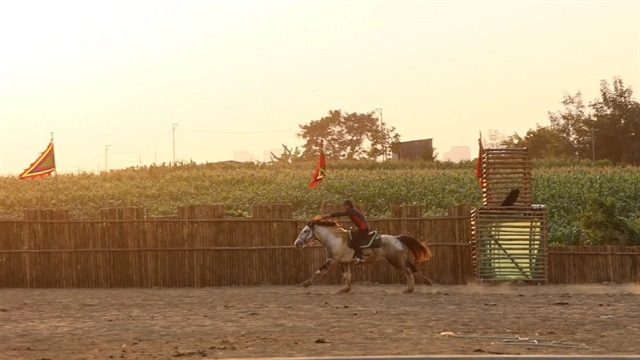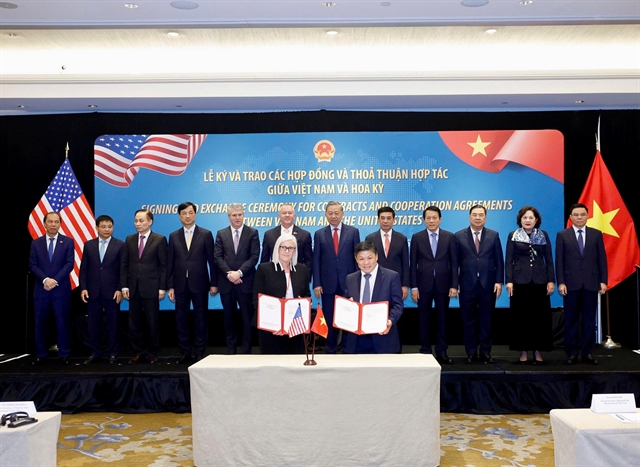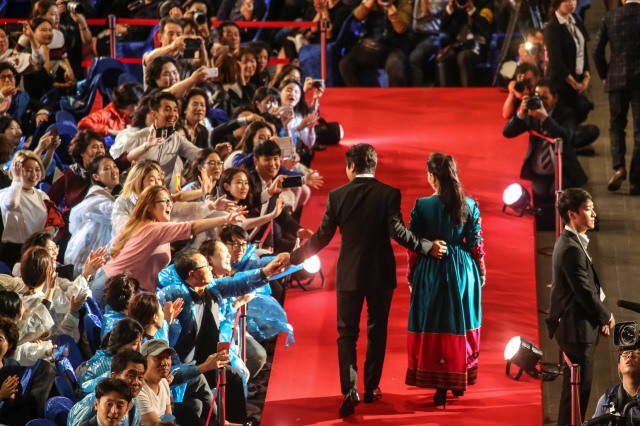 Life & Style
Life & Style

The 21st Busan International Film Festival (BIFF) kicks off on Thursday, with an extended row over artistic freedom and a boycott by high-profile local cineastes threatening to undermine its reputation as Asia’s premier movie showcase.
 |
| South Korean actor Song Kang-ho greets fans while walking the red carpet before hosting the opening ceremony of the Busan International Film Festival with Afghan actor Marina Golbahari, on October 1, 2015. Photo hani.co.kr |
SEOUL – The 21st Busan International Film Festival (BIFF) kicks off on Thursday, with an extended row over artistic freedom and a boycott by high-profile local cineastes threatening to undermine its reputation as Asia’s premier movie showcase.
This year’s event will screen some 300 films from nearly 70 countries, including 66 features that will be receiving their world premieres.
The World Cinema section will include a number of top award winners from the 2016 Cannes Film Festival, including Ken Loach’s Palme D’Or recipient I, Daniel Blake and It’s Only the End of the World which won the Grand Prix for director Xavier Dolan.
The main focus will, as usual, be on Asian films, with the Korean drama A Quiet Dream by Korean-Chinese director Lu Zhang opening the festival, and The Dark Wind by Iraqi director Hussein Hassan bringing down the curtain.
The prestigious annual event has been embroiled in a bitter dispute with the municipal government of the host city Busan since the screening in 2014 of a controversial documentary about the Sewol ferry disaster.
The film, Diving Bell, criticised the government’s handling of the sinking in April 2014 that killed more than 300 people, mostly schoolchildren.
The screening went ahead despite the fierce opposition of the Busan city mayor, and then chairman of the festival organising committee, Suh Byung-soo.
Political revenge?
A subsequent flurry of official probes targeting organising committee members and an unprecedented cut in state funding last year were seen as exacting political revenge and an assault on the festival’s creative independence.
Four major South Korean domestic filmmakers’ groups, including the Producers’ Guild of Korea and the Directors’ Guild of Korea (DGK), have said they will boycott this year’s BIFF, which runs from October 6-15.
The groups have hundreds of members including the Cannes award-winning film director Park Chan-wook and Bong Joon-ho, who helmed the 2013 dystopian Hollywood sci-fi movie Snowpiercer.
There is particular anger over the treatment of former BIFF director Lee Yong-kwan who was forced to step down last year in the face of embezzlement charges.
Lee was instrumental in getting Diving Bell screened and supporters say the case against him is politically motivated. A Busan court is set to hand down a verdict in late October, with prosecutors seeking a one-year jail term.
In a bid to smooth things over, the Busan city government – a major BIFF sponsor – appointed the well-respected former founding director of the festival, Kim Dong-ho, as the new chairman of the organising committee in June, replacing Mayor Suh.
And a month later, the municipal authorities adopted new rules aimed at ensuring the committee’s independence.
While some responded by withdrawing boycott threats, the four prominent filmmakers’ groups refused to budge, saying the regulatory changes did not go far enough.
Boycott vow
"We think the new rules are a compromised version which did not reflect many of the demands from our members and will hardly be enough to ensure artistic freedom of the festival," a spokeswoman of the DGK told AFP.
"The four groups will boycott the event as planned," she said.
Several moviemakers reportedly went so far as to reject the festival’s requests to screen their movies.
The zombie blockbuster Train To Busan – a huge domestic and regional hit – will be absent from the "Korean Cinema Today" section after its production company rejected a screening request, Yonhap news agency said.
"We decided not to submit it because... Busan mayor Suh Byung-soo never made an apology for causing the crisis," the agency quoted an official from Red Peter Film as saying.
BIFF programmer Nam Dong-chul admitted that this year’s event had faced "many difficulties", including a funding shortage, but said the festival was getting back on track.
The appointment of Kim Dong-ho as chairman had "helped convince those in the international film festival circuit that we were at least on the path to revival," said Nam, who also appealed for a strong audience turnout.
"We will be able to safeguard the status of the BIFF only if more movie fans come to our festival and support us," he said. AFP